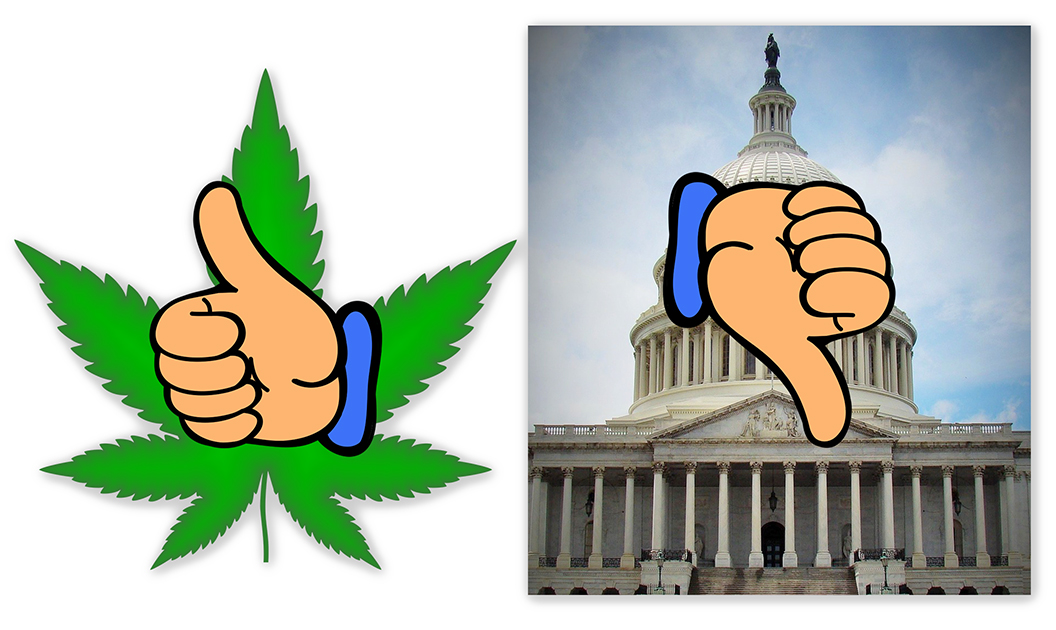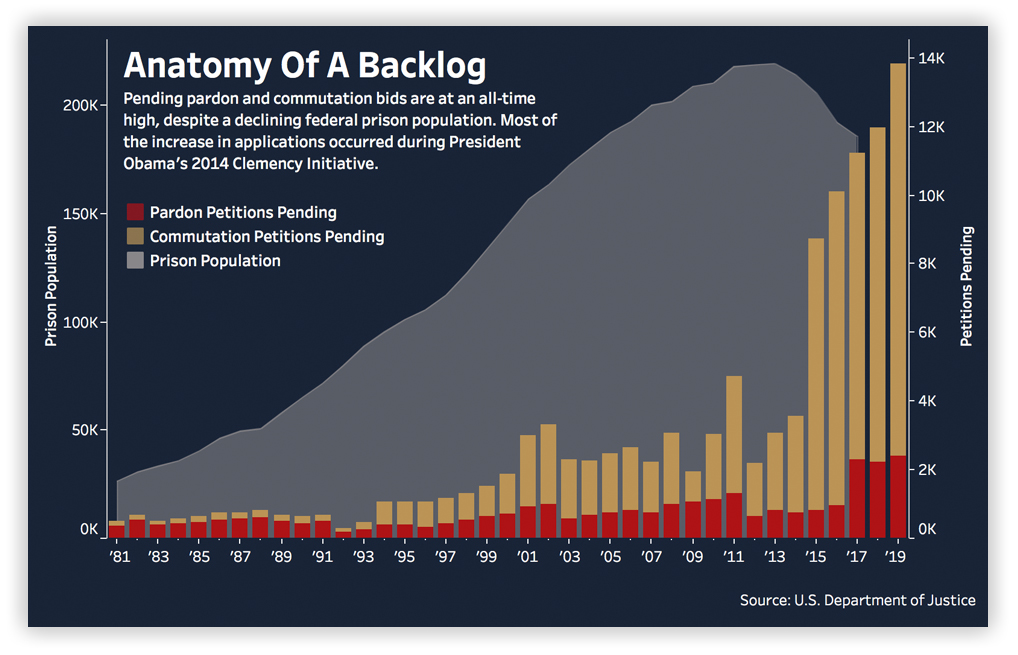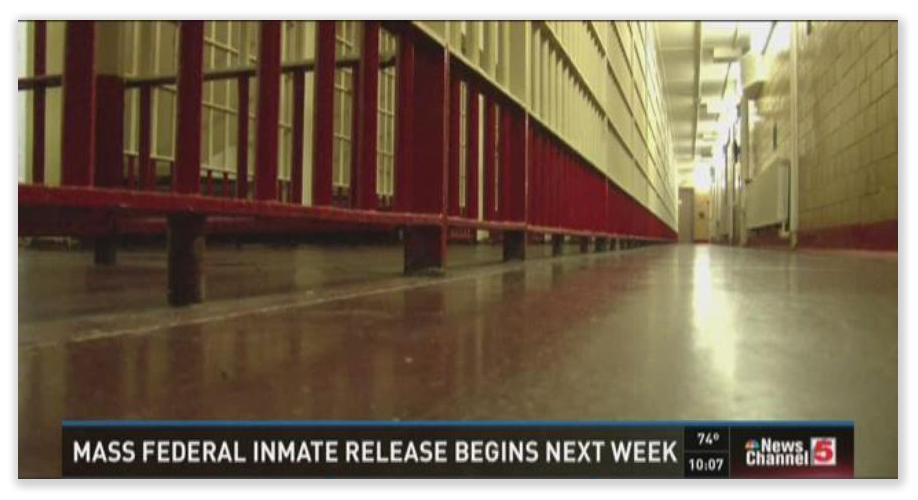We post news and comment on federal criminal justice issues, focused primarily on trial and post-conviction matters, legislative initiatives, and sentencing issues.

BIDEN’S PENURIOUS POT PARDONS
 President Biden last Thursday pardoned thousands of people convicted of simple possession of marijuana (a 21 USC § 844 offense) and said his administration would review whether marijuana should still be a Schedule I drug like heroin and LSD.
President Biden last Thursday pardoned thousands of people convicted of simple possession of marijuana (a 21 USC § 844 offense) and said his administration would review whether marijuana should still be a Schedule I drug like heroin and LSD.
The pardons will clear everyone convicted on federal charges of simple possession in the last thirty years. They will help remove obstacles for people trying to get a job, find housing, apply to college or get federal benefits. Announced a month before the midterm elections, the pardons could help fire up the Democratic supporters.
But they won’t free a single federal inmate.
Officials said full data was not available but noted that about 6,500 people were convicted of simple possession between 1992 and 2021. Only 92 people were sentenced on federal marijuana possession charges in 2017, out of nearly 20,000 drug convictions, according to the U.S. Sentencing Commission. And not a one of them is currently in prison.
You may recall a Biden spokeswoman said in May 2021 that the Administration anticipated starting granting clemency under a new, improved process just before the midterm elections. There’s no sign of a better commutation process anywhere, and as for the clemency list, Aesop would have said, “The mountain has labored and brought forth a mouse.”
Administration officials said there are no people now serving time in federal prisons solely for marijuana possession. The pardon does not cover convictions for possession of other drugs, or for 21 USC § 841 or § 960 charges relating to growing or possessing marijuana with an intent to distribute. Biden also is not pardoning non-citizens who were in the U.S. without legal status at the time of their arrest.
Biden stopped short of calling for the complete decriminalization of marijuana, which is something that Congress would have to do (and could do if the Senate passes the MORE Act). In fact, he largely seems skeptical of marijuana, despite his announcement. He warned that “[e]ven as federal and local regulations of marijuana change, important limitations on trafficking, marketing, and under-age sales should stay in place.”
 However, he directed his Administration to review how marijuana is legally categorized, which drives the level of sentence. “The federal government currently classifies marijuana as a Schedule 1 substance,” he said, “the same as heroin and LSD and more serious than fentanyl. It makes no sense.”
However, he directed his Administration to review how marijuana is legally categorized, which drives the level of sentence. “The federal government currently classifies marijuana as a Schedule 1 substance,” he said, “the same as heroin and LSD and more serious than fentanyl. It makes no sense.”
The Dept of Justice stated, “In coming days, the Office of the Pardon Attorney will begin implementing a process to provide impacted individuals with certificates of pardon. Also, in accordance with the President’s directive, Justice Department officials will work with our colleagues at the Department of Health and Human Services as they launch a scientific review of how marijuana is scheduled under federal law.”
The Washington Post said, “The Biden administration review of marijuana’s classification level, to be led by Health and Human Services Secretary Xavier Becerra and Attorney General Merrick Garland, could address long-standing questions over whether the possession of marijuana should ultimately be decriminalized at the federal level.”
Vox reported that Nishant Reddy, a former advisor to Sen. Cory Booker (D-NJ) on cannabis policy, said, “We’re just a few weeks away from midterm elections, so I do think there’s a little bit of strategic political play with this… That being said, it’s an exciting step in the right direction for those who are facing the negative consequences of unfair policing regarding cannabis.”
Attorney David Holland, executive director of Empire State NORML, sees it as Biden working toward cementing his progressive legacy rather than attempting to gain voter support.
“Biden doesn’t stand to gain anything by it, per se. This is only the midterm; he’s got another couple years to go. I think he’s trying to align himself with progressive politics that undo at least some of the harms of the drug war, and to set up a platform for two years from now that shows him to be a leader in causes relating to equity, justice, economic development, and so on.”
 Holland believes the more meaningful part of Biden’s announcement is the review and possible change in the federal status of cannabis as a controlled substance. “He’s setting the stage for future action,” says Holland. “There is definitely a paradigm shift coming over the next two years going into the 2024 election.”
Holland believes the more meaningful part of Biden’s announcement is the review and possible change in the federal status of cannabis as a controlled substance. “He’s setting the stage for future action,” says Holland. “There is definitely a paradigm shift coming over the next two years going into the 2024 election.”
Forbes last Friday quoted Andrew Freedman, executive director of the nonprofit Coalition for Cannabis Policy, Education and Regulation, as saying, “This could lead to a full descheduling, but I highly doubt that’s where it would end up. It’s more likely that the process ends up reclassifying marijuana as Schedule II, along with fentanyl, cocaine and methamphetamine, or perhaps Schedule III. If Congress decides to act, it could remove cannabis from the Controlled Substances Act and regulate it like alcohol and tobacco.”
“It’s a good sign that the Biden Administration is acknowledging that the current status quo is nonsensical,” says Freedman. “But I don’t think they’ve laid out a complete vision of where we go from here. There are current state markets that are operating; how do we catch up to that?”
While on the campaign trail, Biden said that marijuana should be decriminalized and that records should be expunged. Earlier this year, Biden granted nine people with federal marijuana offenses clemency.
Maritza Perez, director of the Drug Policy Alliance’s Office of Federal Affairs, said there should be fuller relief for people, including resentencing, expungement and removing immigration consequences. “It’s a step in the right direction, but definitely does not do enough to really help repair the harms of the drug war,” she said.
 Some federal inmates were harsher: “Federal marijuana inmates say they’re shocked that President Biden’s mass-pardon for pot offenders doesn’t actually help them — telling The Post that the historic clemency amounts to a “rancid” pre-midterm elections stunt and a “slap in the face” that fails to do what Biden promised as a candidate.
Some federal inmates were harsher: “Federal marijuana inmates say they’re shocked that President Biden’s mass-pardon for pot offenders doesn’t actually help them — telling The Post that the historic clemency amounts to a “rancid” pre-midterm elections stunt and a “slap in the face” that fails to do what Biden promised as a candidate.
There are about 2,700 federal pot inmates, according to a recent congressional estimate, but none will get out because Biden’s pardon applies only to the roughly 6,500 people convicted federally of simple possession, of whom none are in prison, and to unknown thousands more convicted under local DC law.
One inmate told the Post that inmates at FMC Fort Worth “started cheering for us in here for weed” until “the initial glee turned into yet another let-down.”
“Biden fed us rancid hamburger and the media is celebrating as if he served up filet mignon,” an FCI Fort Dix inmate, whose 16-1/2 year marijuana conspiracy sentence ends in 2031, told the Post.
Amy Povah, founder of the CAN-DO Foundation, which advocates for clemency for non-violent offenders, told The Post, “I’m elated for [Biden’s] pardon recipients,” but “I can’t wait for those who are currently incarcerated and have survived a historic pandemic under tortuous conditions to get the relief they were promised, as well.”
 Michael Pelletier, a 66-year-old wheelchair-bound paraplegic who got clemency from Trump, told The Post, “It breaks my heart knowing there are still people serving life without parole for cannabis. I hope Biden will free all pot prisoners because I personally know several people who voted for him based on that campaign promise alone.”
Michael Pelletier, a 66-year-old wheelchair-bound paraplegic who got clemency from Trump, told The Post, “It breaks my heart knowing there are still people serving life without parole for cannabis. I hope Biden will free all pot prisoners because I personally know several people who voted for him based on that campaign promise alone.”
New York Times, Biden Pardons Thousands Convicted of Marijuana Possession Under Federal Law (October 6, 2022)
Associated Press, Biden pardons thousands for ‘simple possession’ of marijuana (October 7, 2022)
LISA, Biden To Ask Fox To Advise On Emptying Henhouse (May 26, 2021)
Washington Post, Your questions answered about Biden’s marijuana pardon announcement (October 7, 2022)\
Dept of Justice, Justice Department Statement on President’s Announcements Regarding Simple Possession of Marijuana (October 6, 2022)
Vox, The most important part of Biden’s surprise marijuana announcement (October 8, 2022)
USA Today, Many Americans arrested for marijuana won’t find relief under Biden’s pardon plan (October 7, 2022)
Forbes, President Biden Says It’s Time To Change America’s Cannabis Laws (October 7, 2022)
New York Post, ‘Slap in the face’: Pot inmates call Biden mass-pardon ‘rancid’ election ruse (October 7, 2022)
– Thomas L. Root


 “The votes are in, they’ve been counted and verified,” Biden said, granting the pardons. “There’s no ballot stuffing. There’s no fowl play.”
“The votes are in, they’ve been counted and verified,” Biden said, granting the pardons. “There’s no ballot stuffing. There’s no fowl play.” Reason magazine was not much kinder to Biden’s clemency for those convicted of simple marijuana possession announced in October. The mass pardon was “an example of all hat and no cattle,” Reason said. “‘I’m keeping my promise that no one should be in jail for merely using or possessing marijuana,’ [Biden] said in October. ‘None…’ But not a single person was released from custody by the Bureau of Prisons due to Biden’s proclamation… The presidential pardon power can and should be used more often. Not just for turkeys, but for the thousands of people serving decades due to draconian drug laws that Biden supported for most of his political career.”
Reason magazine was not much kinder to Biden’s clemency for those convicted of simple marijuana possession announced in October. The mass pardon was “an example of all hat and no cattle,” Reason said. “‘I’m keeping my promise that no one should be in jail for merely using or possessing marijuana,’ [Biden] said in October. ‘None…’ But not a single person was released from custody by the Bureau of Prisons due to Biden’s proclamation… The presidential pardon power can and should be used more often. Not just for turkeys, but for the thousands of people serving decades due to draconian drug laws that Biden supported for most of his political career.”





















